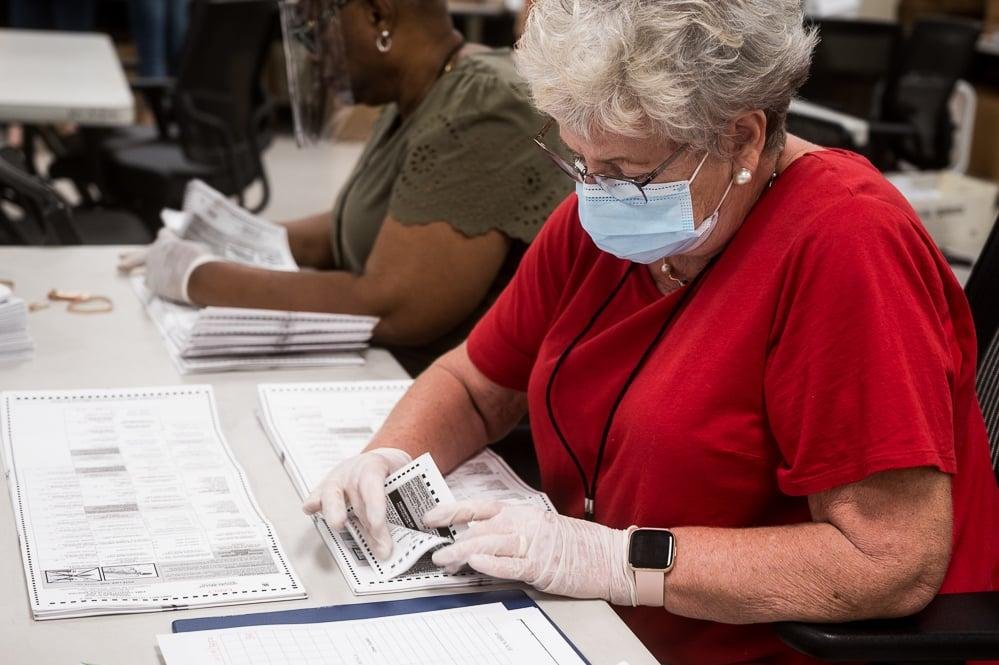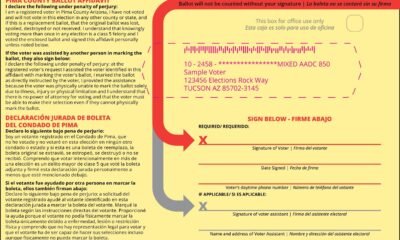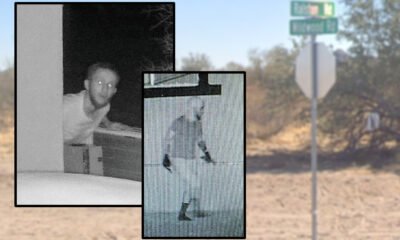arizona
Election Deniers Target Hidden Corners for Recruitment Efforts

Cathy Darling Allen, the election office head in Shasta County, California, is no longer responding to inquiries about her well-being with the customary “fine.” The truth is stark; she’s been embroiled in controversy for over two years.
Her office has faced persistent allegations of election result falsification. “I’ve actually heard people say, ‘Well, you’re cheating to get where you want so that your people will win,’” Allen recounted in a recent interview. “Oh, Lord, if I only had the time for that.”
This ongoing scrutiny reached a pivotal moment in January 2023, when the Shasta County board of supervisors voted 3-2 to terminate their electronic voting system contract. The decision was a response to the growing influence of election deniers in the region, which is characterized by a mix of urban and rural communities and approximately 112,000 registered voters. The county now plans to implement a hand-count voting system.
Such moves are indicative of a broader trend, as election deniers successfully urged local governments across various demographics to recount results or abandon electronic voting entirely. Experts warn that rural communities face dire consequences as a result of this movement.
“We’re at this period that should be celebrated as a high point of participation in American democracy,” stated Justin Grimmer, a political science professor at Stanford University, in an interview. However, he cautioned that the election denial movement poses a threat to this progress.
Voter turnout in the last three federal elections has been historic. The 2020 presidential election saw a record-setting 66.8% turnout among eligible voters, according to the U.S. Census Bureau. Recent reforms aimed at bolstering election infrastructure have made voting safer and more efficient. Yet, former President Trump’s unfounded claims regarding the integrity of the electoral process jeopardize these advancements. Rural areas may be particularly vulnerable.
Research indicates that rural voters often grapple with lower turnout rates, exacerbated by insufficient election infrastructure. A 2022 study concluded that restrictions on mail-in voting disproportionately affect rural populations, where polling locations are fewer and farther apart. Furthermore, skepticism surrounding both electronic voting systems and mail-in ballots has grown, despite the latter being utilized in the U.S. since the 1860s.
The potential reversal of reforms designed to improve election accessibility could dampen civic participation, Grimmer asserts. “If localities begin to react to these election integrity groups and retract reforms, you risk losing transparency,” he warned. “It may even breed skepticism among voters about the election process.”
The genesis of the current election denial movement can be traced back to rhetoric leading up to the 2020 election, where Trump warned supporters that “the only way we’re going to lose this election is if the election is rigged.” Following the election, organized attempts emerged in multiple states to contest the results, alleging widespread fraud. This culminated in the January 6, 2021, Capitol riot, as supporters sought to obstruct electoral certification.
Post-Trump, this movement has been sustained by a cadre of individuals including MyPillow CEO Mike Lindell and others who promote the narrative that elections are being stolen. Their efforts have yielded some success: by late August 2023, seven U.S. counties had adopted or planned hand-count systems for upcoming elections.
Shasta County joins this list alongside other locales such as Spalding County, Georgia, and Cleburne County, Arkansas. Meanwhile, during the 2022 elections, Nye and Esmeralda counties in Nevada, as well as Tripp County, South Dakota, utilized hand-counts. In January 2023, Lycoming County in Pennsylvania conducted a manual recount of the 2020 presidential election results.
Notably, four of the seven counties that have decided on hand-counting their ballots are rural. Plans for hand-counting ballots in the 2024 elections are also underway in districts of several Northeastern states. However, attempts to implement statewide hand-count mandates have largely failed elsewhere, including a veto of such a bill by Arizona Governor Katie Hobbs.
Even if the momentum of the election denial movement seems to be diminishing, experts caution that it is not extinguished. Organizers are now turning to grassroots efforts, employing less conspicuous means to spread their narrative.
“They’re spreading misinformation about voting machines and urging people to file Freedom of Information requests, as well as fostering hostility toward election officials,” noted Charles H. Stewart, a political science professor at MIT. He emphasized that the movement has morphed into a series of grassroots assemblies across the nation, particularly in suburban and rural areas.
In Pennsylvania, for instance, gatherings centered on election integrity have targeted the outskirts of major cities instead of urban centers. Unlike other far-right conspiracies predominantly existing online, this movement thrives on real-life interactions and discussions.
Lycoming County exemplifies this shift. In January 2023, a local group managed to initiate a recount of the 2020 election, despite officials finding negligible differences between the electronic and manual counts. The election director indicated that the group’s loudness belies their minority status within the community.
Across the country in La Plata County, Colorado, election officials face similar pressures, receiving a torrent of open records requests challenging their use of electronic voting systems. Clerk Tiffany Lee expressed frustration at attacks stemming from outside influences based on unfounded distrust of proven voting technologies.
Threats against election workers have surged since 2020, prompting the Justice Department to establish the Election Threats Task Force. Reports suggest that over 1,000 threats were logged, with a significant percentage warranting criminal investigation.
As election officials prepare for upcoming local and state elections—and the presidential election in 2024—the anxiety surrounding accusations of fraud looms large. “We’re just here to do our jobs,” Lee affirmed, echoing the sentiments of many clerks striving for public trust amid a tumultuous electoral environment. “We’re just human beings doing good work for the people’s voices to be heard.”
This article first appeared on The Daily Yonder.


















